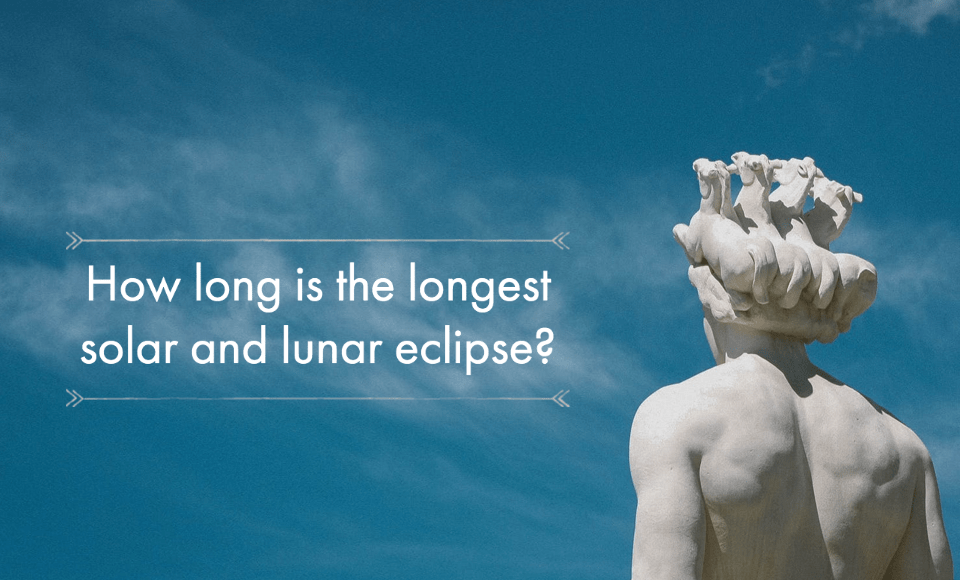Solar and lunar eclipses, much like many of the other events happening in our skies, have fascinated us since we gained enough intelligence to care about anything other than our next meal. The darkening of the skies as a massive disc shaped silhouette slid across the sun, or the moon suddenly disappearing on an otherwise normal night, struck fear into our ancestors’ hearts as they wondered if they had angered a deity in the heavens above.
Naturally, as we progressed as a species and turned to science for answers, we came to understand and even forecast these breathtaking phenomena. Soon we learned that we happened to populate our planet at just the right time to be witness to these eclipses. Only for a relatively brief period of its existence will our planet and its moon be in the perfect spots to completely and totally shadow each other.
A total solar eclipse can last, at the most, only around 7 minutes give or take. A total lunar eclipse can last 1 hour and 40 minutes. But the longest known stellar eclipse (when a moving object such as a planet blocks the light coming from a distant star, it is called stellar eclipse or occultation) lasted 8 years!
The duration of a solar eclipse is set by the relative speeds of the Moon’s shadow, sweeping west to east at 3,200 km/h, and of the observer who is traveling west to east with the Earth’s spin. The Earth moves fastest at the equator: 1,600 km/h. The observer there is more nearly keeping up with the shadow than any other observer and sees the longest eclipse.
Similarly, a total eclipse of the Moon can last as long as it takes the Moon to pass through the widest part of the Earth’s shadow. Unlike a solar eclipse, which is visible only along a confined track across the Earth’s surface, a lunar eclipse can be seen by anyone who can see the Moon.
Scholars, scientists, and astronomers have been recording and detailing these events ever since the inception of their fields of work. We have records of lunar and solar eclipses from millennia ago. The longest ever solar eclipse for thousands of years however, is yet to take place. It will be witnessed by our succeeding generations in the year of 2186, on the 16th of July. This eclipse will have a duration of exactly 7 minutes and 29.22 seconds. It will be the longest solar eclipse between a period of 10,000 years.
The longest lunar eclipse to take place this century has already passed. It occurred on the night of the 27th (or 28th) of July in the year 2018. It lasted exactly 1 hour, 42 minutes, and 57 seconds. Whereas the longest lunar eclipse of the previous century occurred not too long ago; just before the turn of the century on the 16th of July, in the year 2000. It lasted exactly 1 hour and 46.4 minutes.
